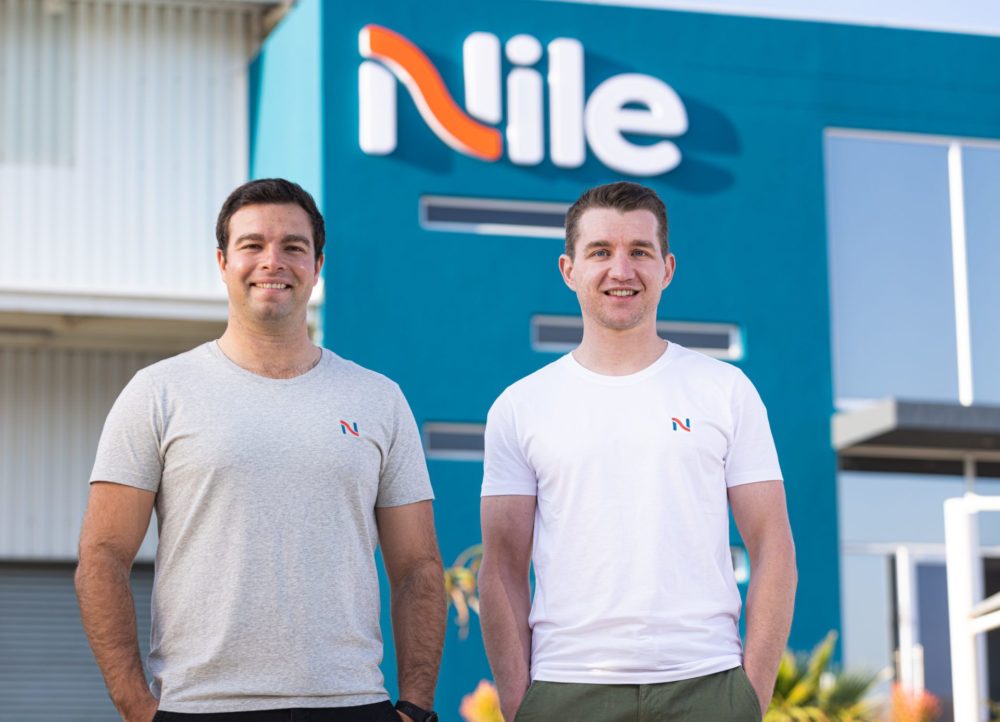Across many developing markets, farmers of all types struggle to find fair pricing and straightforward trading practices, as middlemen along the supply chain tend to complicate dealings and add costs.
South Africa-based Nile operates a marketplace aimed at simplifying this process by digitizing interactions and, through its online marketplace, facilitating more direct relationships between farmers, suppliers, and buyers.
This enables farmers to negotiate fairer prices for their products and to reach customers faster.
Cofounder Louis de Kock experienced supply chain inefficiency and fragmentation first-hand growing up on. a farm in South Africa.
In response, he and the rest of the Nile crew “set out to build an online marketplace that would enable farmers to trade transparently and at a lower cost, while limiting the amount of food waste through the supply chain,” de Kock tells AgFunderNews.
Starting initially as a marketplace for produce sales, Nile has since evolved into a full agribusiness platform that offers everything from fertilizer to financing. Farmers can not only trade produce across multiple regions, but also directly access supplies from manufacturers thanks to Nile’s Inputs Marketplace.
The company just raised $11.3 million in fresh funding from the Cathay AfricInvest Innovation Fund, with additional backing from Dutch development bank FMO and Platform Investment Partners.
Companies such as Nile are in AgFunder’s Ag Marketplaces & Fintech investment category, which grew 77% in developing markets in 2024, according to AgFunder’s recent Developing Markets AgriFoodTech Investment report made in partnership with FMO, Omnivore, and Blue Tree. [Disclosure: AgFunderNews’ parent company is AgFunder.]
With a total funding of $561 million across 96 deals, the category represented 49% of all upstream funding in developing markets in 2024.
As de Kock explains below, this is to be expected, given the given the fragmented nature of most developing nations’ agricultural industries.
AgFunderNews (AFN): What motivated you to start the company?
Louis de Kock (LDK): I grew up on a vegetable farm in central South Africa. It was apparent that the way fresh produce is traded through traditional markets, with multiple layers of intermediaries between farmers and end consumers, is exactly the same as the way my grandfather traded produce, despite all the technological and logistical advances.
We set out to build an online marketplace that would enable farmers to trade transparently and at a lower cost, while limiting the amount of food waste through the supply chain.
AFN: What challenge is your company trying to solve?
LDK: There are many layers of intermediaries involved in agri transactions, often anchored in local relations. Farmers buy inputs from local middlemen and sell produce to traditional markets nearest to them, requiring a complex network of intermediaries to get produce to consumers.
Given the number of intermediaries involved, transactions are typically opaque, with high costs and payment uncertainty. Maintaining the cold chain through the value chain remains challenging.
Nile provides an online marketplace that connects farmers directly to commercial buyers of fresh produce while also enabling them to procure agricultural inputs directly from manufacturers. Through digitization, Nile is able to save farmers costs through lower transaction costs, lower wastage due to a better-maintained cold chain, and guaranteed payments.
AFN: What are the top services you offer farmers?
LDK: What began as a marketplace for streamlining fresh produce sales has evolved into a comprehensive digital farmer ecosystem.
Today, Nile offers agricultural supplies, financing, and data services all under one platform. Farmers can seamlessly manage their entire agricultural cycle—from ordering seeds and fertilizer for planting to procuring packaging materials post-harvest—with financing enabled through Nile’s banking partnerships.
The platform’s integrated approach allows farmers to sell their harvested crops through Nile’s marketplace to local and international buyers, guided by comprehensive data services, with the option to receive instant payment upon delivery.
AFN: In which African markets do you currently operate?
LDK: We connect farmers based in Southern Africa, with buyers across Africa using road, air and sea freight. The key markets are in East and West Africa. We also have buyers in the Middle East and South East Asia trading on the platform.
AFN: How would you describe your experience building a startup in South Africa?
LDK: Digital adoption in Africa is much higher than what we initially expected. Farmers and buyers are open to trying new technological innovations that can increase the viability of their farms.
Startups are typically able to operate at a significantly lower cost compared to developed markets, giving them more runway to test, learn, and improve their products. There are obvious inefficiencies in most African economies (infrastructure, bureaucracy, etc.), which create both opportunities and challenges for entrepreneurs.
AFN: What excites you most about Africa’s agrifoodtech future?
LDK: We are excited by how quickly farmers are embracing a digital way of trading, which is very different from traditional markets.
We have also found that once farmers are comfortable trading within our ecosystem, we are able to offer other complementary products that are beneficial to farmers. This creates loyalty and stickiness, which reinforces the business model.
AFN: What do you have planned for 2025?
LDK: We plan to roll out a more sophisticated inputs app, which will include a more holistic agri-finance offering to help farmers procure inputs on credit. We also want to create predictive analytics based on the value chain data we gather.
We want to roll out more secondary distribution hubs in tier 2 cities; currently, Nile has a hub in Centurion, Gauteng, as well as a single secondary hub in Mahikeng, North West Province.
We plan to double down on our cross-border initiatives to scale beyond the 50+ countries we exported to last year.





